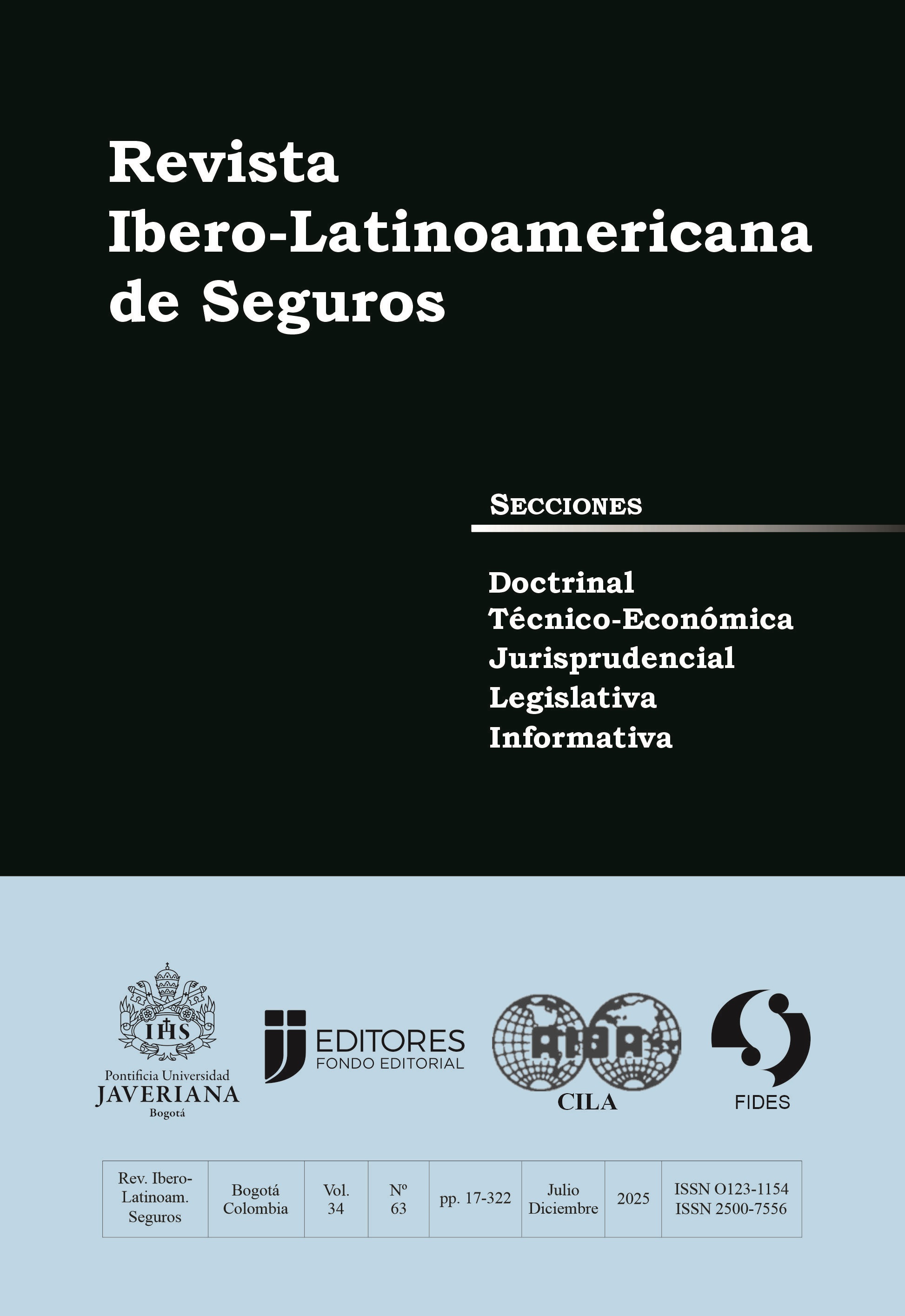Abstract
The duty of disclosure in an insurance contract refers to the duty to truthfully disclose circumstances regarding the state of risk in the insurability declaration, which is used to form the insurance contract. In life insurance specifically, this duty of disclosure refers to the disclosure of the insured's state of health, which is normally included in the insurability declaration, sometimes provided through a questionnaire prepared by the insurer, and sometimes through open-ended questions about the insured's state of health. Failure to comply with the duty of disclosure has been defined by law as concealment and inaccuracy in the declaration of the state of risk and results in the relative nullity of the insurance contract, under the terms of Article 1058 of the Commercial Code. However, this rule contains four paragraphs, which establish not only the insured party's duty to disclose information, implicitly containing the principle of good faith, which has been termed by legal doctrine - utmost good faith - applicable to insurance contracts - but also the consequence of breaching this duty, when information relevant to the insurer is omitted, namely the relative nullity of the contract. However, the rule specifically regulates how the duty must be fulfilled, first when it is done by means of a questionnaire, or without an insurability questionnaire; on the other hand, it establishes a lesser penalty - the reduction of the benefit - when the omission of the duty is due to the innocent error of the policyholder, and finally, it establishes the two hypotheses in which the penalty of nullity does not apply, either because of the actual or presumed knowledge on the part of the insurer of the information omitted by the insured.
JARAMILLO JARAMILLO CARLOS IGNACIO, Revista Iberoamericana de Derecho de Seguros CILA – AIDA, N°11 y 16, Universidad Javeriana, Bogotá (Colombia).
JARAMILLO JARAMILLO CARLOS IGNACIO, Tratado de Derecho de Seguros Tomo II, Editorial Temis, Universidad Javeriana, Bogotá (Colombia), año 2010. Páginas 647-691, 692-720.
JARAMILLO MOOR CARLOS ESTEBAN, “Reflexiones en torno a la exigencia de la relación de causalidad entre el incumplimiento del deber de declarar el verdadero estado del riesgo y la ulterior materialización del siniestro”, Seguro de Personas e inteligencia artificial, pág. 307 – 331. Ed. Thompson – Reuters.
LÓPEZ BLANCO HERNÁN FABIO, Comentarios al contrato de seguro, Ed. Dupre, 2014, pág. 288, 289.
OSSA GÓMEZ J. EFREN, Teoría General del Seguro, T. II. El Contrato, 2ª edición, Bogotá (Colombia), Ed. Temis, 1991, págs. 331 - 335
ORDÓÑEZ ORDÓÑEZ ANDRÉS, Lecciones de Derecho de Seguros N°3, Las obligaciones y cargas de las partes en el contrato de seguro y la inoperancia del contrato de seguro, Ed. Universidad Externado, Bogotá (Colombia), 2008.
VEIGA COPO ABEL, Derecho de Seguros, Ed. Thomson Reuters, (España), 2013.
VEIGA COPO ABEL, Conferencia el deber de declaración en España, Tertulia IARCE sobre reticencia en el contrato de seguro, perspectivas en Iberoamérica. https://www.youtube.com/watch?v=hdw4NKAdrqQ
ZORNOSA PRIETO HILDA, Escrito sobre Riesgos y Seguros, Universidad Externado, Bogotá, 2012.

This work is licensed under a Creative Commons Attribution 4.0 International License.



